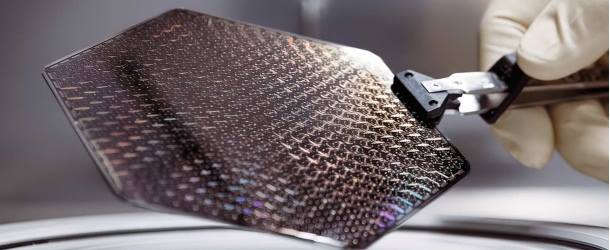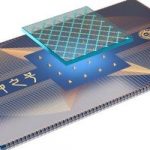Quantum Computing Gone Chip-Scale; Development Spearheaded by Riverlane & Seeqc

(TomsHardware) Quantum computing has gone chip-scale. The development has been spearheaded by Cambridge-based quantum specialist Riverlane’s work with New York and London-based digital quantum company Seeqc; they’ve been the first to deploy a quantum computing chip that has an integrated operating system for workflow and qubit management (qubits are comparable to classical computing’s transistors, but capable of pairing between themselves, instantly share information via quantum states, and also capable of representing both a 0 and a 1).
The new chip ushers in scalable quantum computing – the companies hope to scale the design by increasing surface area and qubit count. The aim is to bring qubits up to millions – a far cry from their current deployed maximum of (comparatively puny, yet still remarkably complex) 76-qubit system that enabled China to claim quantum supremacy. There are, of course, other ways to scale other than qubit count increase – deployment of multiple chips in a single self-contained system or through multiple, inter-connectable systems should provide easier paths to quantum coherency. And on that end, a quantum OS is paramount. Enter Deltaflow.OS. The development is being compared to the desktop computing system revolution of the 1960’s.
Deltaflow.OS is a hardware and platform-agnostic OS (think Linux, which populates anything from smartphones, IoT, to supercomputers), meaning that it can serve as the control mechanism for various quantum deployment technologies currently being pursued around the globe. And even as multiple independent companies (such as Google, Microsoft, and IBM, to name a few) pursue the holy grail of quantum supremacy, Riverlane’s Deltaflow.OS is an open-source, Github-available OS – it’s taking the open approach for market penetration.
To achieve this, Riverlane has effectively created a layered Digital Quantum Managament (DQM) SoC (System-On-Chip) which pairs classical computing capabilities with quantum mechanics. The company’s diagrams demonstrate what it calls an SFQ (Single Flux Quantum) co-processor as the base layer of the design, which enables the OS to be exposed to developers with a relatively familiar interface for interaction with the qubits. This offers the capability to “perform digital qubit control, readout and classical data processing functions, as well as being a platform for error correction.”
Quantum computing has long been the holy grail in development for new processing technologies; however, the complexity of this endeavour can’t be understated. Thanks to the efforts of Riverlane and Seeqc, the quantum computing ecosystem can now “align their needles” and collectively problem-solve for deployment and operation of quantum-computing-on-a-chip solutions.



















